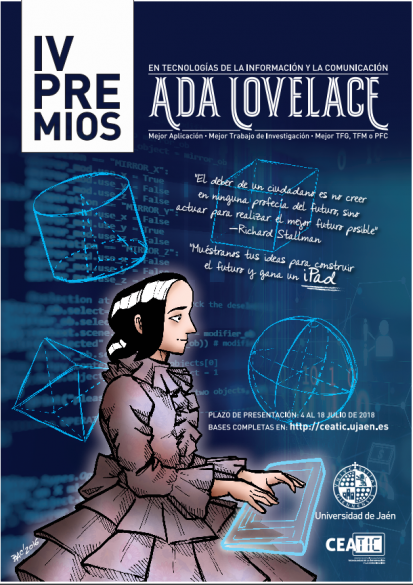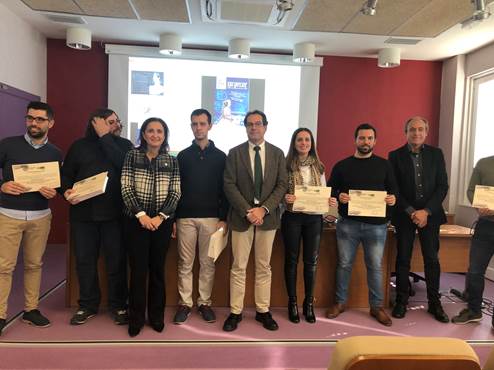
The Centre for Advanced Studies in Information and Communication Technologies (CEATIC) of the University of Jaén has presented the IV Ada Lovelace Awards, aimed at university students in three different categories: Best final project', 'Best software or hardware application' and 'Best work of initiation to research'.
In the category of 'Best final degree, master's degree or final project', the winner was Iván Escobar Sánchez, for his work entitled 'Emotion recognition using the EEG Emotiv Epoc. The finalists in this category were Antonio Martínez Colón, for his work entitled 'Audio-visual processing for the implementation of an attentional mechanism' and Flor Miriam Plaza del Arco, for her work entitled 'Computational analysis of emotions in social networks'. In the 'Best software or hardware application' category, the winner was Adrián Luque Luque, for his work entitled 'Guidance for blind people through the construction of sonic maps of the environment', with Manuel Navas Damas being runner-up for his work entitled 'Design, construction and implementation of an IoT product prototype'. Finally, in the category of 'Best work of initiation to research', the winner was Ángel Miguel García Vico, for his work entitled 'Descriptive models based on supervised learning for the treatment of large volumes of data and continuous data flows'.
The event included speeches by the Vice-rector of Information and Communication Technologies and Digital University, María José del Jesus, and the Director of CEATIC, Luis Alfonso Ureña, as well as a conference by the researcher from the University of Seville, José Francisco Quesada Moreno, who addressed the topic 'Talking to a machine: between science, fiction, comedy and terror'.
In his speech, Luis Alfonso Ureña explained that the aim of this call for prizes is, on the one hand, to encourage university students to present their work and disseminate it, "creating a participatory event that stimulates creativity". On the other hand, to evaluate the students' abilities and reward those who stand out for their work. "We intend to encourage work and effort in the development of training and assessment work, promoting extracurricular objectives and an ethic of professional demand, disseminating the work carried out by our students to the university community and society in general. We also want to encourage entrepreneurship through this type of awards and that CEATIC is the engine and driving force that induces such initiatives," he said.
These awards are named after 'Ada Lovelace', a British aristocrat and mathematician who in the mid-19th century wrote a sequence considered to be the first computer programme in history. For this reason, she is recognised as the first programmer in history and the mother of programming languages.

